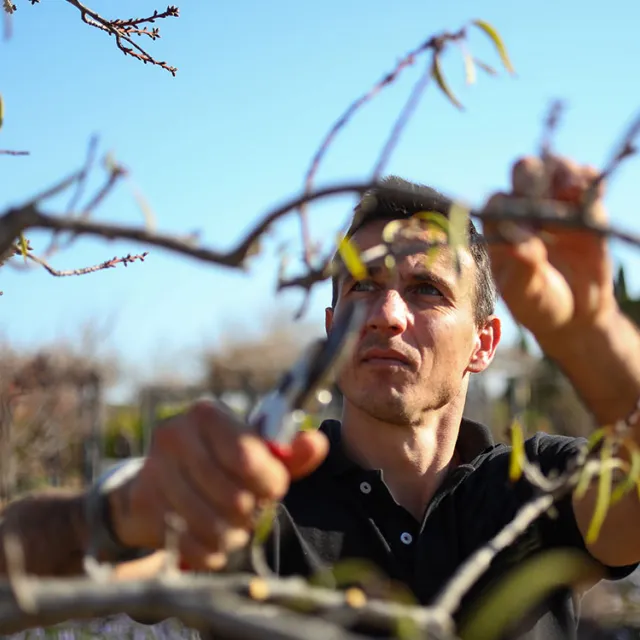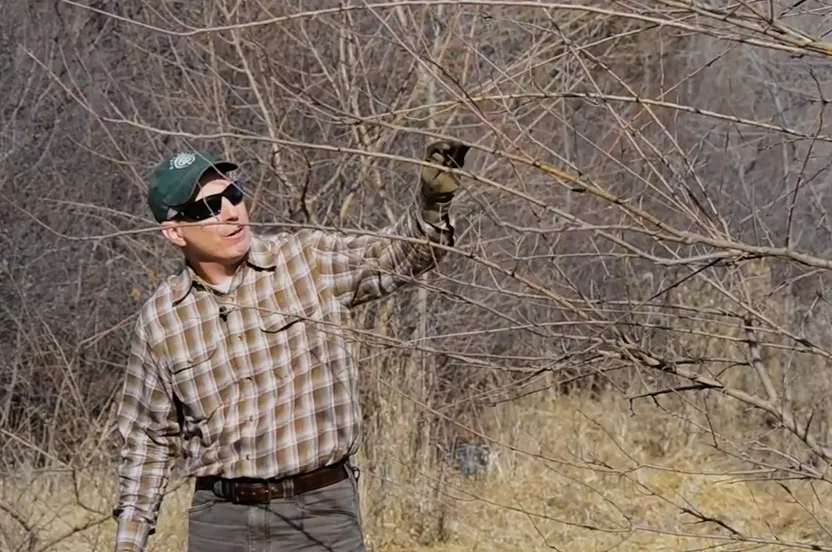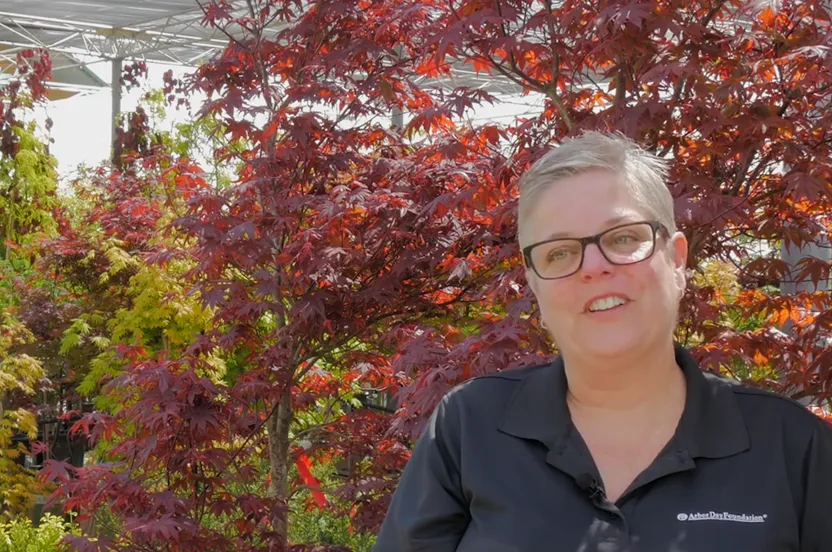The Arbor Day Foundation is pledging 10 million trees to areas impacted by hurricanes Helene, Milton Help us replant

Pruning Made Simple
Tree pruning, trimming, or cutting is an ongoing process throughout the life of your tree. After selecting the right tree and carefully planting it, early pruning is the most important thing you can do for a young tree. Pruning during dormancy is the most common practice. It results in a vigorous burst of new growth in the spring. It is usually best to wait until the coldest part of winter has passed.
Master the ABCs of Tree Pruning
Step A
Step A: Assess
- How is the tree growing? Is it healthy?
- What is the setting? Does human activity dictate a desired form for the tree?
- What species is it? What is its natural form? Is it a ‘shade’ tree or ‘ornamental’ tree? This will dictate how you prune.
Step B: Remove Bad Branches
Start with the three ‘Ds’ – dead, damaged, and diseased. Next, look for branches that are rubbing, or those weakly attached. Look at the tree, and the pile of branches removed so far, if you haven’t reached any of the limits in the ‘five factors,’ continue.
Step C: Remove or Reduce Competing Branches
You identified the central leader in Step One; now we want to address any competing branches:
- Co-dominant stems: it’s best to keep this cut as small as possible, so complete removal is usually best.
- Competing laterals: these are branches that have a shoot headed upward at the same height as the leader.
Next, focus on areas where multiple branches connect to the trunk at the same place. Develop better branch spacing by removing one each year, starting with the largest one first. Next, consider clearance: these temporary branches in the lower third of tree height improve trunk strength, but may need to be shortened.
Finally, consider crossing (not rubbing) branches or chances to improve vertical branch spacing. Every pruning cut is a new chance to observe the tree in light of the “five factors;” stop pruning when any of the factors are reached.



